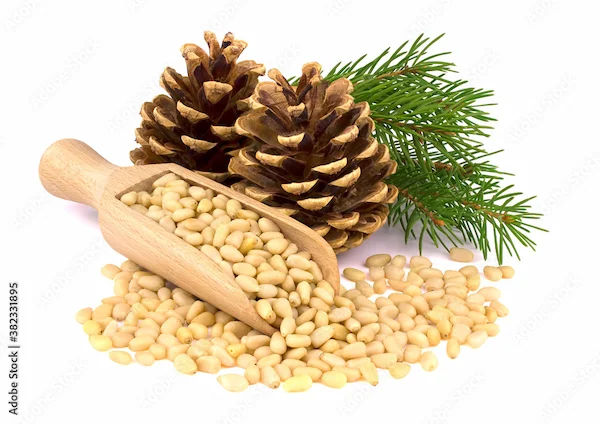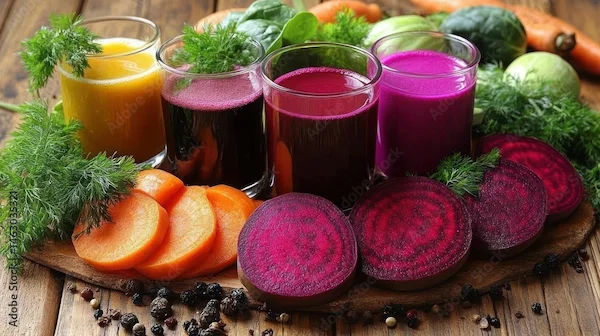Gym Diet Plan for Beginners
Discover a gym diet plan for beginners, its significance, key components of a gym diet, and a sample plan. Learn about the useful tips for a successful diet journey.

Written by
Last updated on 20th Jul, 2025

Introduction
Starting a gym routine is an exciting step toward better health and fitness. But did you know that what you eat plays an equally important role in achieving your goals? A well-balanced gym diet plan helps fuel your workouts, supports muscle growth, and speeds up recovery.
If you're new to fitness, figuring out what to eat can be overwhelming. Don’t worry—this guide breaks down everything you need to know in simple terms.
Why Is a Gym Diet Important?
Exercise alone isn’t enough to build strength, lose weight, or stay energized. Your body needs the right nutrients to:
Boost energy levels for workouts.
Repair muscles after training.
Maintain metabolism for fat loss or muscle gain.
Without proper nutrition, you may feel tired, struggle with recovery, or even lose muscle instead of fat.
Key Components of a Beginner’s Gym Diet Plan
A good gym diet includes a mix of:
1. Proteins – The Building Blocks of Muscle
Protein helps repair and grow muscles after workouts. Good sources include:
Lean meats like chicken, turkey, and fish
Eggs, especially egg whites)
Dairy includes Greek yoghurt, and cottage cheese.
Plant-based proteins like beans, lentils, tofu, quinoa
Consult Dietitian
How much protein do you need?
Beginners: 1.2–1.6 grams per kg of body weight.
Example: If you weigh 70 kg, aim for 84–112 grams of protein daily.
2. Carbohydrates – Your Energy Source
Carbs fuel your workouts and prevent fatigue. Choose:
Complex carbs, including brown rice, oats, whole wheat bread, and sweet potatoes
Fruits & vegetables like bananas, apples, spinach and broccoli
Avoid too much sugar and refined carbs (white bread, pastries) as they cause energy crashes.
3. Healthy Fats – Essential for Hormones & Recovery
Fats support hormone production and joint health. Include:
Nuts & seeds including almonds, walnuts and chia seeds
Oils like olive oil and coconut oil
Avocados & fatty fish like salmon and mackerel
4. Hydration – Don’t Forget Water!
Dehydration leads to fatigue and cramps. Drink:
3–4 litres of water daily (more if you sweat a lot).
Electrolyte drinks after intense workouts.
Sample Beginner’s Gym Diet Plan
Here’s a simple one-day meal plan to get you started:
Pre-Workout (1–2 Hours Before Gym)
Option 1: Oatmeal with banana + 1 scoop peanut butter
Option 2: 2 boiled eggs + whole wheat toast
Post-Workout (Within 30–60 Minutes)
Option 1: Grilled chicken + brown rice + steamed veggies
Option 2: Protein shake + a handful of nuts
Breakfast
Scrambled eggs with spinach + whole wheat bread
Lunch
Grilled fish + quinoa + roasted vegetables
Snacks
Greek yoghurt with berries
A handful of almonds
Dinner
Grilled paneer/tofu + dal + roti
Common Mistakes to Avoid
1. Skipping meals → Leads to low energy and muscle loss.
2. Eating too little protein → Slows muscle recovery.
3. Overeating processed foods → Causes bloating and fat gain.
4. Ignoring hydration → Affects performance and recovery.
Tips for Better Results
Meal prep in advance – Saves time and keeps you on track.
Eat every 3–4 hours – Keeps metabolism active.
Listen to your body – Adjust portions based on hunger and energy levels.
Avoid extreme diets – Balance is key for long-term success.
When to Consult a Nutritionist?
If you have specific goals like weight loss, muscle gain, or managing a health condition, a personalised diet plan helps. You can:
Book a consultation with a nutritionist on Apollo 24|7 for expert guidance.
Get a customised meal plan based on your body type and fitness level.
Final Thoughts
A good gym diet plan for beginners doesn’t have to be complicated. Focus on balanced meals, enough protein, and hydration, and you’ll see better energy, faster recovery, and improved results.
Consult Dietitian for Personalised Advice
Consult Dietitian for Personalised Advice

Ms Suvashree Bhattacharya
Dietician
7 Years • Allied Healthcare professional
Dumdum
Sigma Health Care, Dumdum

Ms. Soma Saha
clinical nutrition
17 Years • B.Sc. - Home Science (Food & Nutrition), M.Sc. - Home Science (Food & Nutrition)
Kolkata
Dr Utsa Basu Clinic, Kolkata
(25+ Patients)

Ms Suchanda Guha
Dietician
10 Years • M.Sc (Applied Nutrition), B.Sc (Food & Nutrition), Diploma (Yogic Nutrition)
Kolkata
NutriKutir, Kolkata

Ms. Priyanka Saini
Dietician
9 Years • Msc (Food & Nutrition),NDEP
Ghaziabad
Dr. PRIYANKA SAINI'S CLINIC, Ghaziabad

Ms. Sreeparna Dey Dhara Deb
Dietician
8 Years • Master of science and dietetics
Bansdroni
Siddhita Healthcare., Bansdroni
Consult Dietitian

Ms Suvashree Bhattacharya
Dietician
7 Years • Allied Healthcare professional
Dumdum
Sigma Health Care, Dumdum

Ms. Soma Saha
clinical nutrition
17 Years • B.Sc. - Home Science (Food & Nutrition), M.Sc. - Home Science (Food & Nutrition)
Kolkata
Dr Utsa Basu Clinic, Kolkata
(25+ Patients)

Ms Suchanda Guha
Dietician
10 Years • M.Sc (Applied Nutrition), B.Sc (Food & Nutrition), Diploma (Yogic Nutrition)
Kolkata
NutriKutir, Kolkata

Ms. Priyanka Saini
Dietician
9 Years • Msc (Food & Nutrition),NDEP
Ghaziabad
Dr. PRIYANKA SAINI'S CLINIC, Ghaziabad

Ms. Sreeparna Dey Dhara Deb
Dietician
8 Years • Master of science and dietetics
Bansdroni
Siddhita Healthcare., Bansdroni




